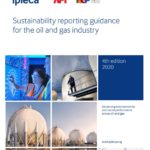The analysis of nearly one thousand environmental, health and safety regulatory initiatives taken in 2001 in more than 40 countries indicates that industry should prepare for more stringent requirements with regard to emergency planning, corporate transparency and climate change.
This is the conclusion of the annual research carried out by ENHESA Environmental Policy Centre (EPC). The research, entitled "2002 Global Forecast of Environmental Health and Safety Policy and Regulatory Developments Impacting Industry", aims at identifying the issues that multinational companies need to focus on in the coming years in order to stay ahead of the regulatory curve and ensure continual compliance in a manner that strengthens business.
The research involved screening of more than 2,000 regulatory initiatives that occurred in 2001 in 42 countries on 4 continents. The screening allowed the identification of 850 regulatory initiatives with regard to environment and occupational health and safety that have an impact on industry in general. A detailed analysis of these 850 regulatory initiatives against the existing regulatory framework and current industry practice revealed ten priority issues that ENHESA believes will have significant implications for international industry over the coming year or longer. Multinational companies wishing to ensure compliance with regulatory requirements in a way that fosters business growth are recommended to take proactive measures with regard to these issues.
The research also revealed that 65% of all new regulations in 2001 were adopted in Europe. The Asia-Pacific and Latin America regions followed with each approximately 15%. Worldwide 54% of the issues dealt with occupational health and safety and 46% with environmental issues, which is a change compared to previous years.
The ENHESA Environmental Policy Centre is a global environmental, health and safety (EHS) policy and regulatory consulting group. EHS issues, notably in the context of sustainability, ISO 14000 and corporate social responsibility constitute a growing concern to multinational companies, particularly in light of the substantial increase in regulation worldwide. ENHESAs mission is to assist multinational companies in identifying the current and pending regulatory requirements they have to comply with and assist them to ensure continuous compliance in a practical and cost-effective manner.
The Environmental Policy Centre (EPC) was initially created by LAW Engineering & Environmental Services in 1989 under the leadership of former U.S. EPA Administrator, Lee Thomas. EPC has evolved into the world leader in assisting multinational companies to ensure ongoing compliance with EHS regulatory requirements worldwide. In 2001 EPC was acquired by ENHESA, maintaining a strategic partnership with LAW Engineering & Environmental Services.



